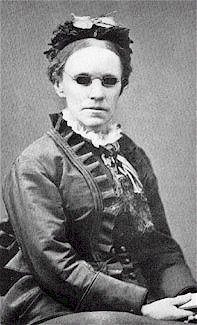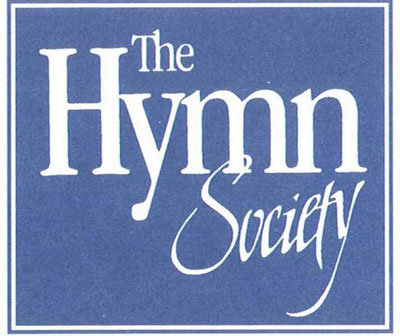History of Hymns: "Rescue the Perishing" by Fanny J. Crosby
By T. Wes Moore

Fanny J. Crosby
“Rescue the Perishing”
by Fanny J. Crosby
The United Methodist Hymnal, No. 591
When thinking of Gospel hymnody, one of the first people who comes to mind is Fanny J. Crosby. She composed nearly 8,500 texts in her lifetime, including approximately 1,000 found in 1972 by the Hope Publishing Company.1 Two of Crosby’s most famous hymns that cross many denominational boundaries are “To God Be the Glory” and “Blessed Assurance, Jesus Is Mine.”
Born in Putnam County, New York, on March 24, 1820, Fanny Crosby was a part of a Presbyterian family. At six weeks old, she had an eye infection and it is believed that she received improper treatment, which caused her to become blind, from a man who pretended to be a doctor. That same year, Crosby’s father died and she was then raised by her mother and grandmother.2
Fanny J. Crosby eventually entered the New York School for the Blind. Her skills as a musician were well noted and they showed that she had incredible memory and intelligence. Later on, Crosby joined the faculty at the school and married Alexander van Alstyne, who was also blind and a teacher at the school.3
During the 1840s, Crosby did not identify with any particular denomination. However, in 1850, she experienced a conversion at Chelsea Methodist Episcopal Church in New York City and converted to Methodism and was attracted to the work the denomination was doing with those on the margins of society. In the mid 1860s, the composer and publisher, William B. Bradbury, encouraged Fanny Crosby to begin writing sacred, instead of secular, texts. Eventually, she wrote six or seven hymns a day and her hymns were sung at many evangelistic services in the U.S. and Great Britain.4
In 1869, Fanny J. Crosby was inspired to write “Rescue the Perishing” after she met the men who were housed in a New York City mission. She was concerned about their spiritual well-being and earnestly pleaded with the men that if there was someone “who had wandered from his mother’s home and teaching,” to please come and see her at the end of the service.5 A young man came up to Crosby and said that he would like to see his mother in heaven, but according to the way he was living his life, he was convinced it was not possible. After ardent prayer with Crosby and everyone attending the service, he accepted God’s justifying grace. That night, when Fanny Crosby went home, she wrote the words “Rescue the Perishing.”6 It should be noted that Crosby wrote texts pertaining to the temperance movement and this hymn carries the same overtones.
Crosby’s hymn appears in The United Methodist Hymnal in four stanzas and has been included in Methodist hymnals since 1882. S. Paul Scholling, who was a consultant to the Hymnal Revision Committee, argued in deliberations to keep this hymn because it is one of the few Gospel hymns that express “the gospel imperative” to minister to our neighbors.7 Too often, Gospel songs reflect personal piety and do not mention our duties as Christians living in a secular society.
The text is directed to Christians, but it is implicit. Crosby’s words in stanza one give six commands to the Christian: Rescue, care, snatch, weep, lift, and tell. We are to be active in the lives of those who have yet to realize they are beloved children of God and continuously walk with them on their journey.
In the second stanza, Crosby writes that while people who are not saved ignore the love and grace of Jesus Christ, Christ is still there waiting for them. Our duty is to plead with them gently and unceasingly, for we are to not lose hope that Christ will bring the sinner into Christ’s arms.
Stanza three juxtaposes what the sinner’s heart is like and what it could be. The tempter has crushed any feelings of hope or joy for the person. However, grace can restore the person to lead a hopeful life that has been touched by someone who will love the sinner and treat them with kindness. Notice it does not say to proselytize through the use of dogma, but rather the Christian is to love unconditionally and walk with that person through uncertain times. In other words, belonging is greater than believing. If the Christian treats the person with radical hospitality first, the faith of that person will come to fruition later.
Crosby writes in the fourth stanza that it is our duty to rescue those in trouble. We are not to sit idly and watch our neighbors suffer. For if we pray to God for strength and pure hearts to witness to the people around us, God will provide what we need to share Christ’s love. We are to “patiently win them,” for salvation is a process and does not happen all at once. Above all else, we are to proclaim to the world that a loving Savior has died for them, lives forever, and wants to be in communion with them.
Finally, each stanza is followed by the simple refrain:
Rescue the perishing,
Care for the dying;
Jesus is merciful,
Jesus will save.
We are reminded of our duties to our neighbors. We rescue and care for them. The Christian life is a process and this hymn reminds us that we are to constantly be there for our neighbors and that Jesus is indeed merciful and ready to save.
The composer of the tune for “Rescue the Perishing,” RESCUE, is William Howard Doane. He collaborated with Fanny Crosby on approximately 1,000 of her hymn texts. Out of the 2,200 tunes he created, about thirty remain used today, including NEAR THE CROSS, PASS ME NOT, I AM THINE, and TO GOD BE THE GLORY.
1 Carlton R. Young. Companion to the United Methodist Hymnal (Nashville, Abingdon Press, 1993), 736.
2 Bert Polman/JRW/CY. "Fanny Crosby." The Canterbury Dictionary of Hymnology. Canterbury Press, accessed May 18, 2016, http://www.hymnology.co.uk/f/fanny-crosby.
3 ibid.
4 ibid.
5 Carlton R. Young. Companion to the United Methodist Hymnal (Nashville, Abingdon Press, 1993), 568.
6 ibid.
7 ibid.
About this month’s guest writer:
T. Wes Moore is a 2009 graduate of the Sacred Music program at Perkins School of Theology in Dallas, Texas and a member of the Hymn Society in the United States and Canada. After four years of full-time music ministry in Shreveport, Louisiana, he returned to seminary to continue discerning his call to ordained ministry in the Presbyterian Church (USA). Currently, he is a first-year student at Union Presbyterian Seminary in Richmond, Virginia.
This article is provided as a collaboration between Discipleship Ministries and The Hymn Society in the U.S. and Canada. For more information about The Hymn Society, visit thehymnsociety.org.


Contact Us for Help
View staff by program area to ask for additional assistance.
